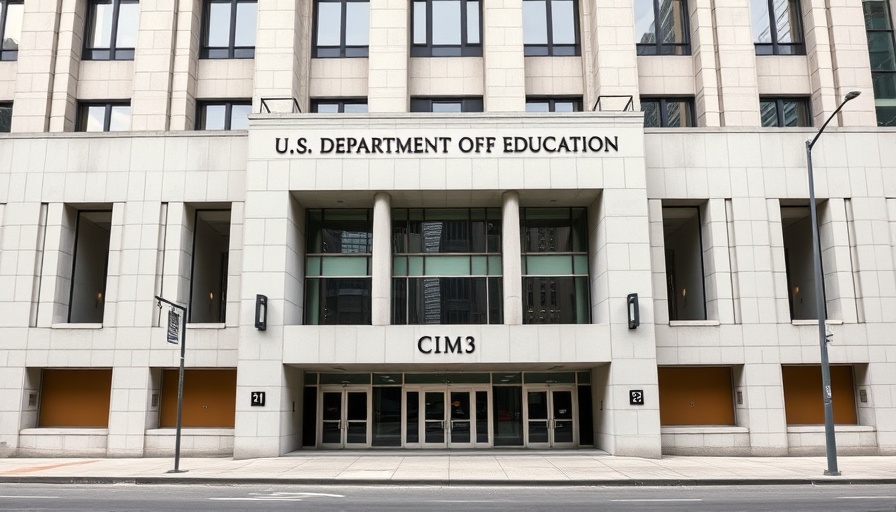
Understanding the Implications of Trump's Decision
In an unexpected turn, President Donald Trump has taken significant steps toward dismantling the U.S. Department of Education, an agency that oversees vital educational funding and standards across the nation. His recent executive order directs the Secretary of Education to initiate actions toward the potential closure of this crucial department. While the complete shutdown would require an act of Congress, this executive action raises important questions about the future of education governance in Michigan and beyond.
The Shift Toward State Control of Education
Trump's executive order is part of a larger campaign to decentralize educational governance, shifting control back to individual states. The administration has long argued that decisions regarding education are best left to local authorities who are more attuned to their communities' unique needs. For Michigan, a state that relies heavily on federal aid, this could mean significant changes. House Republicans in Michigan have already expressed their support for the measure, viewing it as a positive reform.
The Risks of Dismantling Federal Support
However, critics warn that eliminating or drastically reducing the Department of Education could lead to substantial funding cuts. Programs that assist low-income students, special education, and other essential services could be on the chopping block. This concern is particularly acute in Michigan, where more than 600,000 students rely on Title I funding, which supports schools with high percentages of students from low-income households.
Promises vs. Reality: What Will Be Preserved?
In his announcement, Trump did assure that certain federal programs such as Pell Grants and Title I funding would not be affected by the closure. Nonetheless, the ambiguity around the capabilities of the remaining state-funded programs raises further questions. As federal support is critical for many educational institutions, including Michigan's colleges and universities, the ramifications could be profound. Many local leaders are urging caution, emphasizing that sustainable funding must be a priority.
The Future of Education in Michigan
Turning the focus to the future, will the governance shift empower local districts in Michigan, or will it lead to inequality in educational quality? Some education advocates propose that a state-level approach could promote more tailored educational solutions, while others worry that without federal oversight, disparities in access and quality will deepen.
The potential future landscape may involve greater power for local decisions, but it also raises concerns about ensuring equitable education for all students. Furthermore, it's vital to monitor how this proposed change aligns with the evolving needs of Michigan's diverse student population, especially as challenges continue to mount in the face of educational inequities.
Take Action: Stay Informed and Engage
As Michigan residents, it's essential to stay abreast of these developments and engage in discussions about the implications of Trump's executive order. Keeping an eye on local initiatives, attending town hall meetings, and voicing concerns about educational equity and funding may help influence how these changes unfold. Democracy thrives on informed citizens, so participating in these important conversations is vital.
Ultimately, understanding and responding to these educational changes will be crucial for ensuring that all Michigan students continue to receive the support they need to thrive. Education is an issue that affects everyone, and staying informed will empower us to advocate for the best outcomes for our state's youth.
 Add Row
Add Row  Add
Add 




 Add Row
Add Row  Add
Add 

Write A Comment